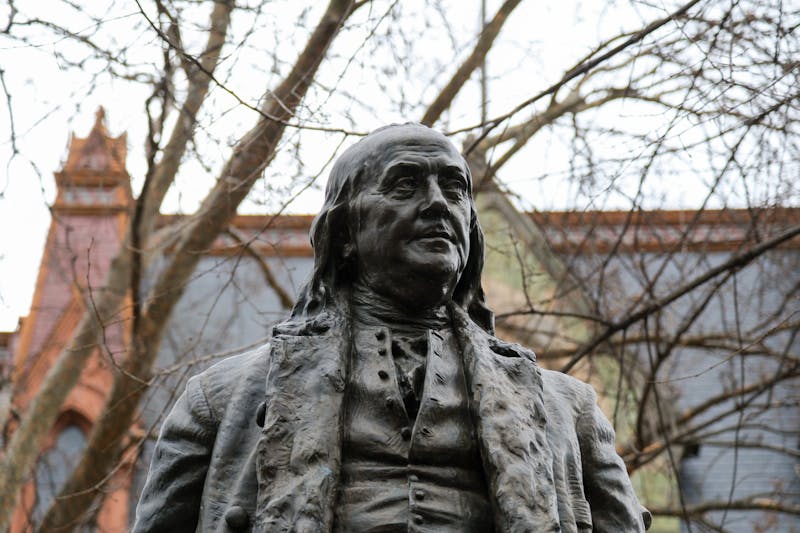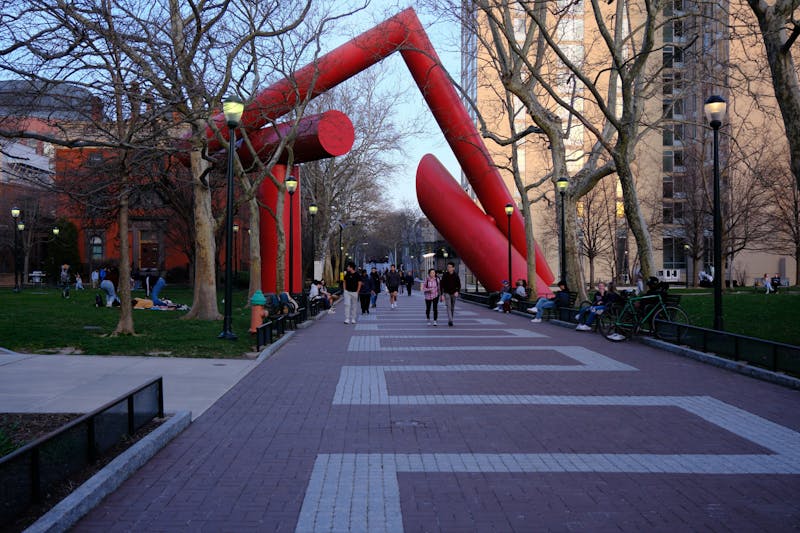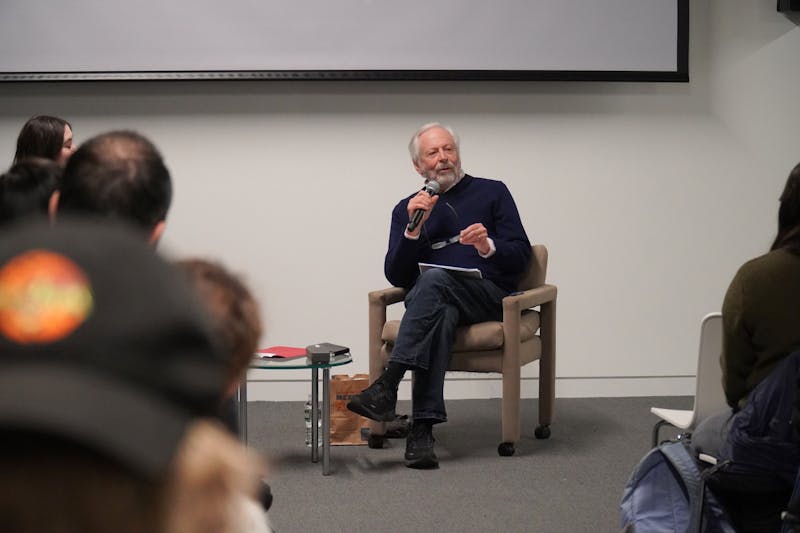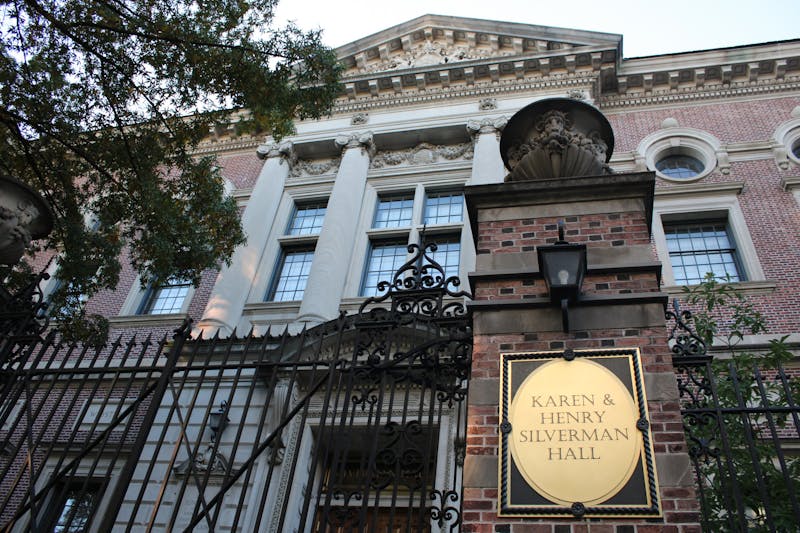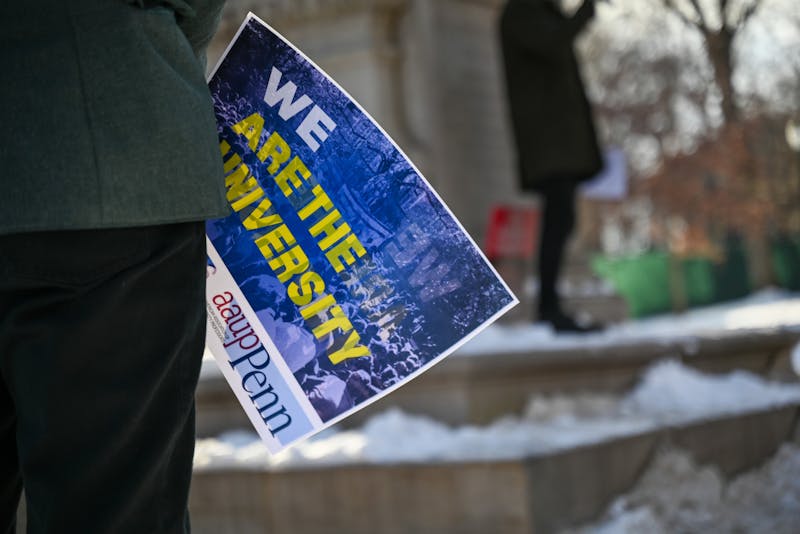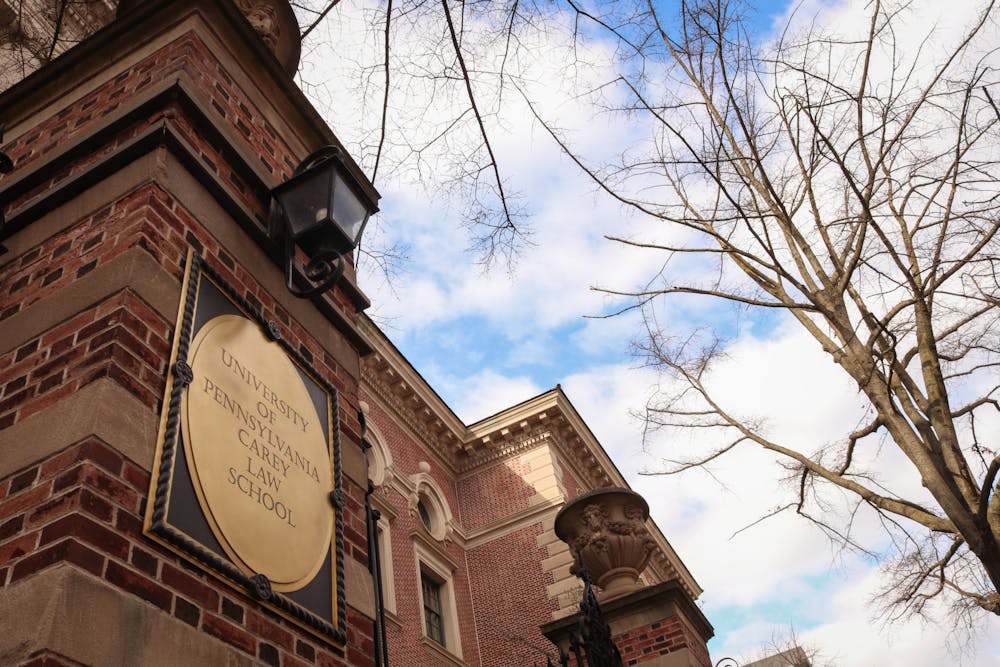
Penn Faculty Senate held a roundtable at the University of Pennsylvania Carey Law School to discuss the state of academic freedom and open expression at universities in the context of the current political climate.
Moderated by Penn’s History Department Chair Sophia Rosenfeld, the panel on Thursday featured Princeton University politics professor Keith Whittington, Cornell University professor of labor and employment law Risa Lieberwitz, and University of Chicago Edward H. Levi Distinguished Professor of Law Geoffrey Stone.
At the roundtable, the scholars engaged in a debate regarding the best ways to define academic freedom, assess institutional neutrality, gauge freedom of speech, and evaluate university policies and actions. Audience members were then invited to ask questions about the ongoing scrutinization of university policies amid heightened national tensions.
The panel, which is the Faculty Senate's final roundtable this spring, was open to all Penn community members and aimed to address the question "Are Academic Freedom and Open Expression Under Siege?"
Addressing a university’s right to take a "neutral" stance, the panelists offered differing perspectives on the validity of neutrality and its effects on faculty and students. Stone — who served as dean of the University of Chicago Law School from 1987 to 1994 — said that universities should not take political and social positions in order for faculty and students to preserve the freedom to take any stance on any issue. Alternatively, Lieberwitz said that the concept of "neutrality" is contradictory, as inaction itself is taking a position.
Rosenfeld is the author of the 2018 book "Democracy and Truth: A Short History" and teaches an undergraduate course at Penn called "Free Speech and Censorship," which will be offered in fall 2024. In an interview with The Daily Pennsylvanian, Rosenfeld spoke about the deep-rooted history of free speech and academic freedom and how these concepts have developed amid an evolving society and political world.
"Academic freedom grew out of the idea that academics should be both self-governing and allow a wider range of speech than you might in many places," she said, "precisely because of the special mission of academic life and because of the needs of advancing knowledge."
Panelists also examined the extent to which speech is protected by principles of academic freedom and the First Amendment. Lieberwitz classified harmful speech as being targeted towards an individual or group of individuals in a way that creates a hostile environment. She analyzed the criteria under which speech is unprotected and stressed the importance of practicing constructive criticism to combat offensive or marginalizing speech.
When asked about the limitations of free speech, Whittington explained the difficulty of qualifying "incompetent speech," referencing the recent Indiana law requiring professors at public universities to promote "intellectual diversity" or face disciplinary action. He also discussed the nuances of policymaking, stating that universities should not "go looking for monsters to slay."
The state of academic freedom and open expression has been a topic of concern for many constituencies across campus over the past two semesters. In December 2023, over 1,200 faculty members signed an open letter to the University Board of Trustees accusing influential alumni and donors of interfering with Penn's academic policies. The letter, which was circulated by the Faculty Senate tri-chairs, expressed opposition to "all attempts by trustees, donors, and other external actors to interfere with our academic policies and to undermine academic freedom."
In Janury, the Faculty Senate expressed support for academic freedom, open expression, and faculty governance, stressing the importance of "differing perspectives" through which the University "drives inquiry, cultivates knowledge, shares learning, and contributes to the common good." The resolution, which was endorsed by the Faculty Senate Executive Committee, added that "open expression is not limitless, and that speech must not become a weapon used to harass."
On April 12, Penn's chapter of the American Association of University Professors made recommendations to the Presidential Commission on Countering Hate and Building Community. The suggestions from the AAUP Executive Committee included creating a "legitimate and effective mechanism" for enforcing Penn's guidelines on open expression and strengthening its policies protecting academic freedom.
"As we all know, this has been a difficult year for free speech questions at Penn and at many institutions, from small liberal arts colleges to big state universities," Rosenfeld said. "It seems the best way to approach the problem is — what we do as academics is — try to analyze it, try to understand what's at play, where the problems came from, and what solutions might exist out there."
The Daily Pennsylvanian is an independent, student-run newspaper. Please consider making a donation to support the coverage that shapes the University. Your generosity ensures a future of strong journalism at Penn.
Donate







